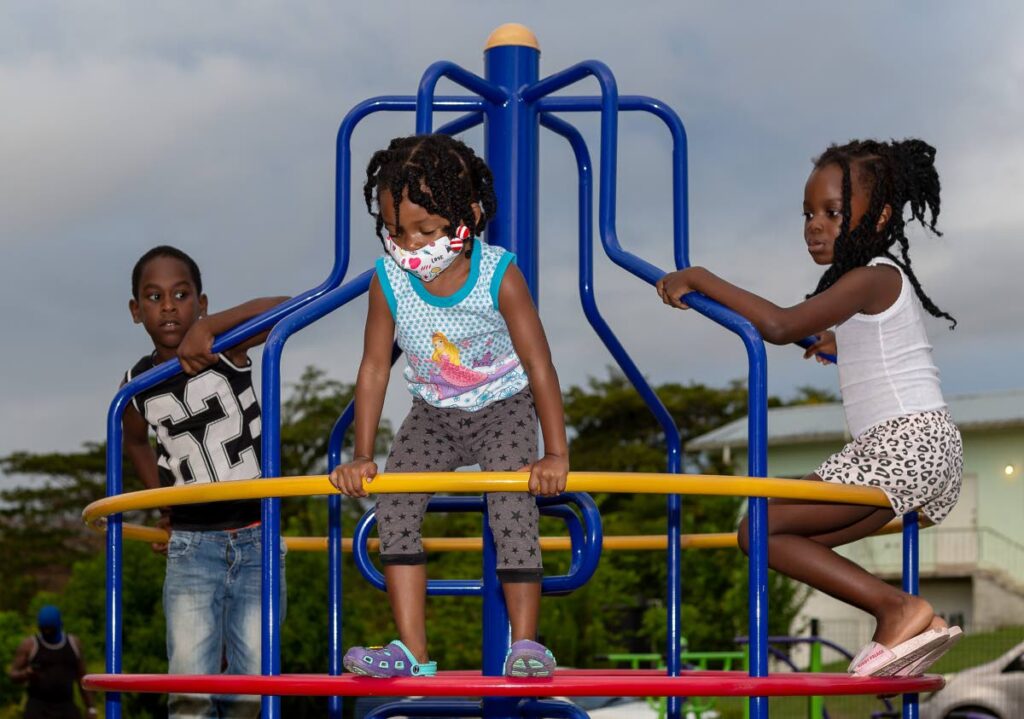Children must learn as best they can

MARY CUFFY
“Childhood is not a race to see how quickly a child can read, write and count. It is a small window of time to learn and develop at the pace that is right for each individual child. Earlier is not better.” – Magda Gerber
In 1989, world leaders made a historic commitment to the world’s children by adopting the United Nations Convention on the Rights of the Child, an international agreement on childhood. It’s become the most widely ratified human rights treaty in history and has helped transform children’s lives around the world. The government of TT ratified the convention on December 5, 1991.
However, not every child gets to enjoy a full childhood.
Shouts echoed from the unpainted two-bedroom house. “That teacher will have it hard with you, when yuh go primary school. Money doh come easy 'enno, two weeks now ah pick up them writing books in the supermarket and, you never touch them. You better trace the first four pages, else I go bus ur tail, you want to be like all the others?"
The dark mahogany door opened with a deep, echoing creak as the mother stepped outside. She waved casually to the neighbours and sat on the step pondering what future lies ahead for her child until the moon hid behind a patch of greyish, navy clouds. Intermittently she shouted, “Chile ur finish!”
Many well-meaning parents buy workbooks and have their children sit quietly in a corner and trace letters over and over again. That’s totally uninspiring. In many homes in early times, young children were engaged in filling out worksheets and reciting numbers in a rote fashion. However, just because young children can do those things, it is not sufficient justification for requiring them to do so. Young children usually willingly do most things adults ask of them. However, their willingness is not a reliable indicator of the value of an activity. The developmental question is not what can children do, rather it is, what should children be doing that best serves their learning and development in the long term?
Firstly, research confirms the view that young children learn most efficiently when they are engaged in interaction rather than in merely receptive or passive activities. Young children should be interacting with materials and their surroundings in ways which help them make sense of their world. They should be investigating and observing aspects of their environment worth learning about (festival, landmarks, insects, sea creatures), recording their findings, observations through talk, paintings and drawings.
Secondly, another risk of introducing young children to academic work prematurely is that those who cannot relate to the tasks required are likely to feel incompetent. Children who repeatedly experience difficulties may come to consider themselves stupid and may bring their behaviour into line accordingly.
The early childhood years have proven to be vital years of growth and development in a child’s life. It is crucial for their growth and development because they will guide and determine their future. The problem is that young children do not have the necessary fine motor skills to complete daily tasks, progress academically, and meet developmental milestones. Their hands are not physically ready. A child’s hands do not grow only in size but young children need time for the cartilage to develop into bones. For this reason, parents should not put strain on a child’s developing hands. They are not ready to write physically!

Fine motor skills involve the organisation of the use of small muscle groups such as the fingers and the hands. Recent research suggests that fine motor skills are so important that they are connected to how a child learns to read, completes math skills, and other higher-level cognitive thinking.
Research indicates that early life experiences and interaction, including stimulation of senses, have the greatest influence on brain development during the first three years of life.This is the period where visual and visual perceptual skills develop and is the foundation phase for gross and fine motor development.
Many of a child’s daily activities require control of small muscles in the hand. Fine motor skills are used in many activities of daily life such as dressing, bathing, eating, and academic skills such as handwriting.
It is therefore, critical to ensure parents and educators understand the role they play in the development of a child’s motor skills. Provide activities to develop:
• Grasp – have a variety of objects to reach for. Vary the shape and texture of objects. Picking up a soft ball, for instance, requires different skills than grasping a wooden cube.
• Pre-writing skills – cutting, tearing, building puzzles, beading and threading.
• Postural control – sit and catch: child should sit on an unstable surface, eg, a wobble board or cushion and watch a ball rolled towards them, catch it and roll it back. Do this to either side. Climbing on frames, nets, rope ladders and wall bars.
• Tripod grasp – position washers onto screws, press sticks into play dough, drop dry beans into small containers.
Here are some fun writing rhymes:
Cranny loves curves
Cranny the crayon drew curve lines,
Here there and almost everywhere,
Her hands went all the way around,
She made waves that moved up and down,
Some lines looked like sea creatures, with some really cool features,
It looked like the crack on the crab’s back,
Cranny was so proud she said crick – crack.
L
enny love lines
Lenny loves drawing lines
He drew nine lines
He drew a sign
He followed a vine in a straight line.
He took a twine and formed a number nine.
He felt fine every time he drew a squiggle line
Lola loves dots
She had dots on her clothes,
She had dots on her nose,
She put dots on her toes
She drew dots on her rose,
She loved dots a lot.

Comments
"Children must learn as best they can"